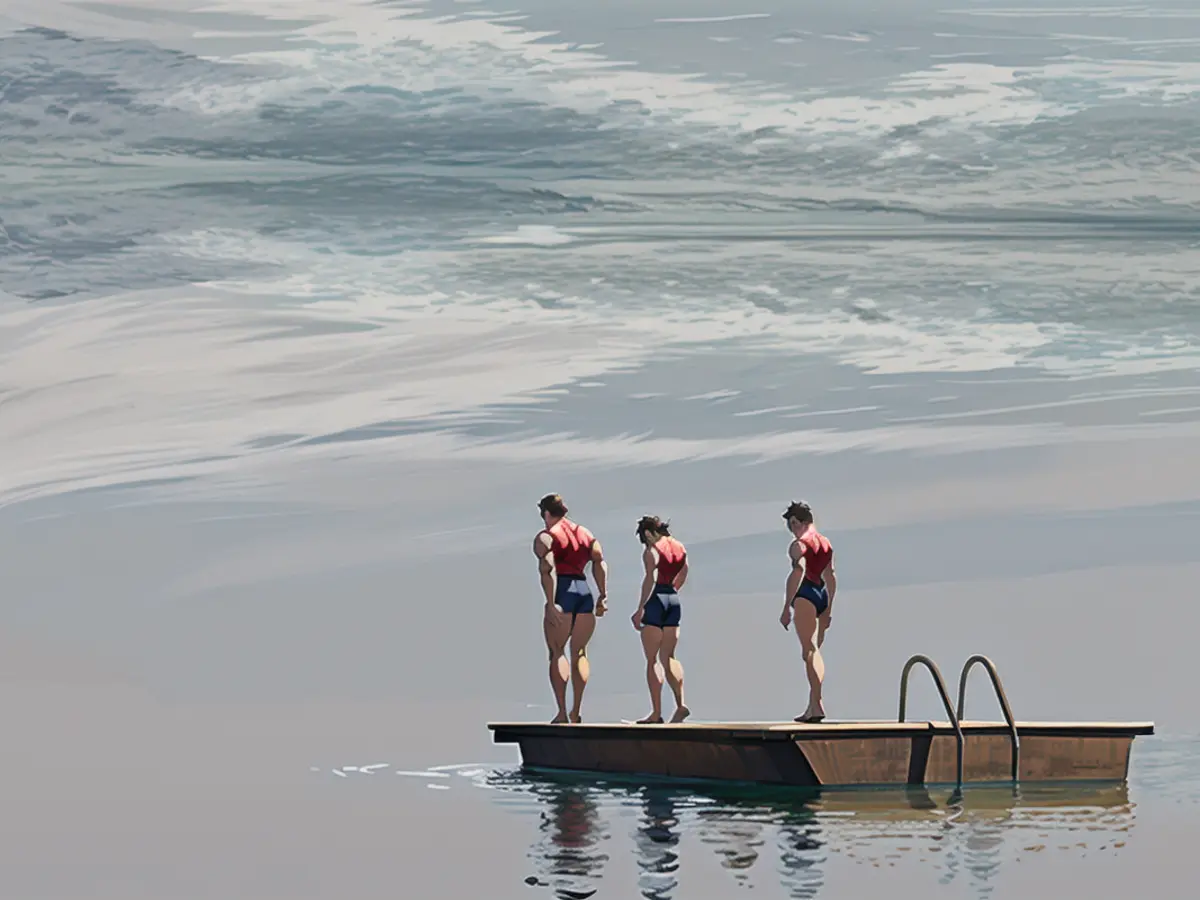Free time activities - European swimming spots typically exhibit high-quality water.
When it comes to bathing in German and European waters, most times you can enjoy a safe swimming experience. As per an investigation by the European Union, about 90% of German bathing waters are rated excellent when it comes to quality. An additional 6% are classified as good. This information was released in a report by the European Commission and the European Environment Agency on a Tuesday. In the Federal Republic, 37 out of around 1,900 inland bathing areas and 360 coastal bathing areas have a sufficient quality score. The remaining 7 spots had poor ratings. Unfortunately, data about the quality of 42 German bathing areas couldn't be found.
The primary focus of this evaluation is on the safety of the water based on the presence of bacteria that could lead to serious health issues.
94% of European bathing areas have high quality scores
Almost 94% of all bathing areas in Europe are known to have excellent or good water quality scores. Among the 22,000 bathing areas in 27 EU countries, Albania, and Switzerland, only 344 (1.6%) have poor quality standards.
According to the analysis, coastal waters usually have better quality ratings than inland waters. The countries with the highest numbers of excellent bathing spots are Greece, Croatia, Cyprus, and Austria. All the bathing areas in Belgium, Bulgaria, Luxembourg, Malta, and Romania met the bare minimum quality requirements for 2023. Following the introduction of the Bathing Water Directive in 2006, the percentage of bathing areas with poor quality scores has been in a steady decline and has remained more or less stable since 2015. The data for these evaluations was received from member states for the bathing seasons of 2020 to 2023.
It's heartening to see that European citizens can now benefit from 40 years of efforts to improve the quality of our bathing waters. The Director of the European Environment Agency based in Copenhagen, Leena Ylä-Mononen, emphasized the importance of regular monitoring of coastal waters, rivers, and lakes by the member states. This monitoring is vital for our health and well-being, as well as for the environment, especially since climate change has brought about severe weather conditions such as heavy rainfall that can impact water quality.
Read also:
- Floods: water levels remain critical in many places
- Snow chaos further restricts Bavaria
- Continuous operation in the flood areas
- Flood situation remains tense in many places
Source: www.stern.de







